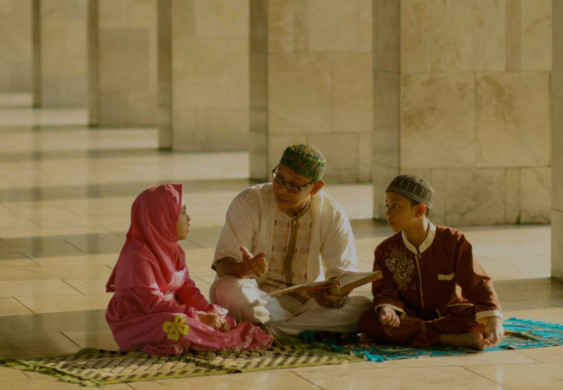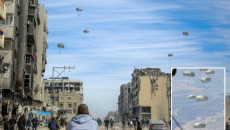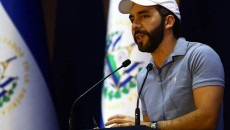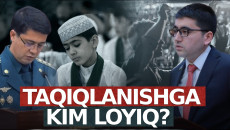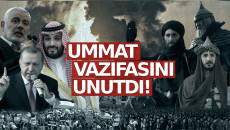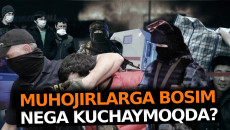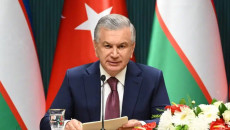What is the difference between Uzbek jihadists?
Do you know the main difference between Uzbek (Tajik and Uyghur) jihadists who are members of subversive organizations in Syria, Iraq and other countries from representatives of other nationalities? They fight neither for money nor for other worldly interests. They go to war blindly thinking that they will become a martyr (although they cannot answer the question of what jihad is, martyrdom).
They neither fear death nor demand money or other material things for their services. Uzbeks, Tajiks and Uyghurs are all kinds of headaches for the subversive organization and the special services of foreign countries that trapped them (the goal of terrorist organizations is not religion or the hereafter, but to achieve political and economic interests; it is no secret that the main subversive actions are organized by special services) and are considered ready "gladiators" without responsibilities.
They do not have to pay monthly or other expenses. If he provides them with food, clothing, and weapons, they throw themselves into the fire saying "Allahu akbar".
There is no accountability or criminal consequences for such mercenaries. That is, let's say that for some country's geopolitical goals in the territory of Syria, Uzbeks are abandoned by their nation and homeland, and they are homeless people who have no way to return. Through them, they can carry out any of their nefarious goals and crimes against humanity, but there is no punishment for this. there is no accountability: no one can accuse or prove these countries of war crimes, invasion and intervention. In addition, no one, neither the perpetrator's family nor the victim, can claim compensation.
So, why Uzbek, Tajik or Uyghur? Because these nations, firstly, are very inclined to religion, and secondly, there is a fierce struggle against religion in their country. In the conditions of strong pressures, restrictions, persecutions and repressions, young men and women whose religious needs are not satisfied and who are not given basic religious knowledge, when they get religious and religious "freedom" that they have not seen in their life as a result of the Internet or external migration, they easily fall into the trap of terrorist organizations and special services.
Against the background of the "Crocus" events and the war in Gaza, the negative view, mistrust and danger of the citizens of Tajikistan and Uzbekistan in the West and other countries have increased. On the contrary, with new restrictive measures against Islam and Muslims in their territory, the governments of the MO countries began to send a signal to the world that "We are fighting against religion and radicalism."
These signals, in fact, lead to a common sense conclusion that the citizens of this country will become more radicalized and become more dangerous terrorists. Because according to the laws of physics, the higher the pressure in an environment, the greater the risk of explosion. Judging from this, it is likely that in the near future new restrictions will be introduced in Western countries against citizens of Uzbekistan, and surveillance will be strengthened.
In order to satisfy the religious needs of the population, at the same time, to widely promote the ideas of radicalization, tolerance, and pluralism, it is desirable to create a system combining both religious and secular education. After all, as long as there is a need in the population, this gap will be filled in any way, and restrictions and punishments can cause the opposite results, such as dissatisfaction, aggression, and division of society.
In order to avoid such situations and the image of the country in the world does not deteriorate further, the Central Asian countries and governments, especially the young generation, should dramatically increase the ways to satisfy the religious needs of the young generation through real scholars of religion and experts. In particular, it is necessary to develop the standards for the introduction of "Religious Culture and Secular Ethics" courses with modules according to the type of religious confessions registered in the country by introducing appropriate amendments and corrections to the legislation in this regard. The student will take classes in one of the above modules based on the choice of his parents. It is desirable that the lessons are conducted by retrained pedagogues of the school, not by employees of religious organizations.
It should not be forgotten that the widespread spread of religious education will not lead to radicalization in society, as many fear. On the contrary, a person with a broadened religious understanding can distinguish white from black, truth from falsehood, and does not become a puppet in the hands of various destructive forces. Even then, if Bordiu meets those who fall into wrong paths and do not return from this path, it will not be difficult to stop them. Because now not only the special organizations of the state, but also the conscious society are fighting against them.



.png)
